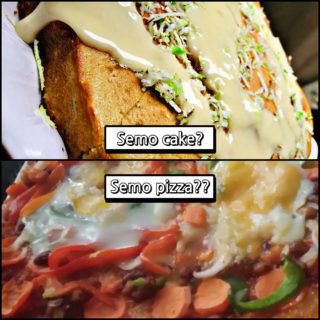In this story, a pharmacist tells us of his experience working at a general hospital and how the experience affected him forever.
My days started pretty early when I worked at the general hospital. I made sure to get to work every day by 7:45 a.m. to relieve whoever worked the night shift. For context, the hospital got a lot of elderly patients who were mostly people with very little money because the government had screwed them over regarding their pensions, so they depended on free drugs from the hospital. The process of getting free drugs was so stressful, whoever did the job of handing them out had to be someone who had their full mind in it, which is hard to do when you’ve just finished the night shift and are struggling to stay awake. So to avoid a situation where the person who worked the night shift was too tired to give the patients the attention they needed, I arrived early to help.
I worked at the pharmacy unit and would interact with patients after they’d gotten prescriptions from the doctor. These prescriptions usually contained drugs that cost what a privileged person would consider chicken change, but these people struggled to afford it. I watched people pick between buying food or buying the drugs they needed. There was a woman who fainted because she had to pick between buying food or her drugs, and she picked her drugs, causing her to take them on an empty stomach. There was a diabetic woman who came regularly to get free anti-diabetic drugs from the hospital. I can’t remember why now but she missed a couple of days, and the next time she showed up was in excruciating pain. She described it as thousands of needles pricking her arms and legs. The doctor prescribed a drug for her that cost thousands of naira. I knew damn well she couldn’t afford it so I told the doctor this, and he suggested I prescribe the cheapest brand of the drug we had instead. I took the drug to her and told her the price (N100), and she broke down crying that she couldn’t afford it. I ended up paying the fee because it broke my heart to see her like that.
There was another woman who came to the hospital every two days to buy subsidised anti-psychotics for her children. Everyone at the hospital knew her so we assumed she lived close by. I eventually found out that she lived in Ikorudu and came from there every two days. After talking with her, I bought her two weeks worth of drugs (which cost N2500) so she could rest. She cried and thanked me. A man came with his toddler who was coughing and stooling. They were asked to buy two bottles of antibiotics, but the father decided to buy one because that was all he could afford. I tried explaining antibiotic resistance to him and that the drugs would only work when taken together but he said there was nothing he could do and that God would do the rest.
Seeing countless people suffer like this changed me. I could no longer be as happy-go-lucky as I used to be. I promised I would do as much as I could to help ease these people’s struggles, and I did, but it felt like I was fighting a losing battle because there was always someone else who needed help. We were trapped in a system that didn’t work, and one person couldn’t change anything. I continued to do the best I could but also came to terms with a hard truth; I couldn’t save everyone.
People are getting hit with expensive medical bills every day. Some people are even afraid to go to hospitals because of it. It doesn’t have to be this way, though. This is where getting health insurance from Hygeia HMO can help.

Hygeia HMO has a wide variety of health insurance plans for individuals, families, and even employees at businesses. You can get check-ups, medical advice, and treatment from health professionals at a fraction of the usual cost. Visit https://www.hygeiahmo.com/our-plans/personal-family-plans/ to find a plan that best fits your needs.




